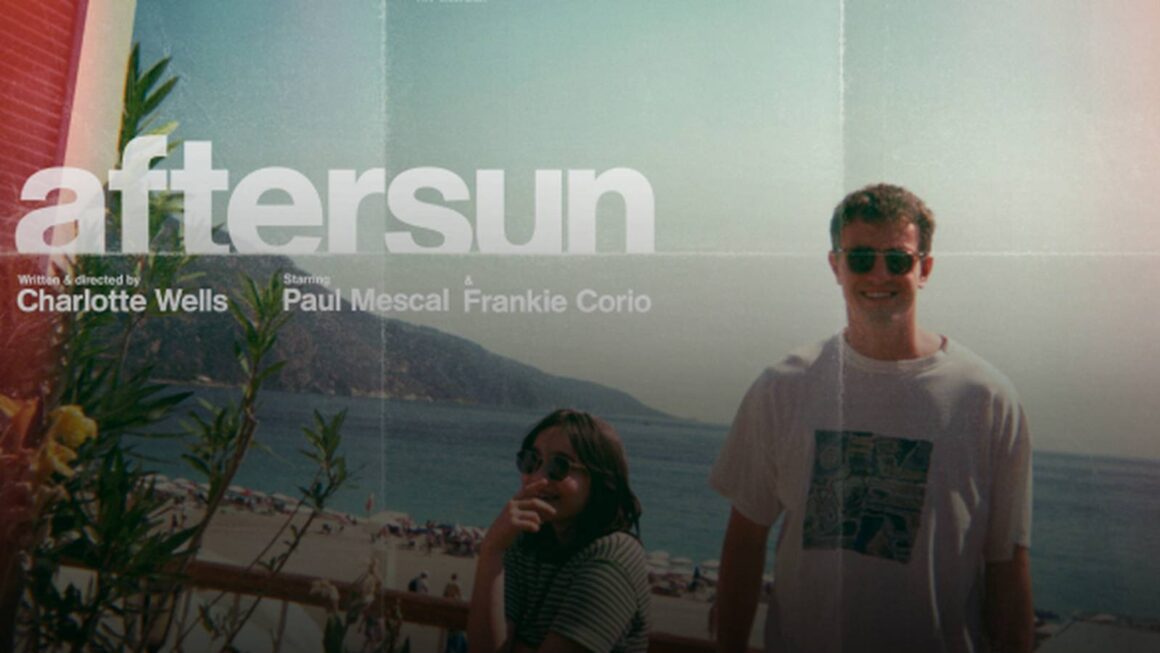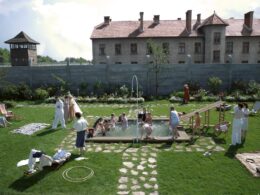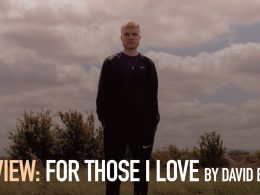Review: Aftersun directed by Charlotte Wells
Mubi, 2022
Reviewed by Harper Cleves
(Spoiler warning)
Aftersun, written and directed by Charlotte Wells, follows a late 90s summer holiday of a Scottish father-daughter duo Sophie and Callum, played by Franki Corio and Paul Mescal. The film has been lauded by critics, and for good reason. Wells’ feature directorial debut is a quiet masterpiece that explores childhood, ageing, loss, and renewal with an aching poignancy that every viewer will find an echo of in their own human relationships.
The clear perspective and careful yet unobtrusive cinematography recount the mundanity of a summer holiday, while packing each moment with emotion and meaning. The film begins through the lens of a camcorder, and from the first flickering image on screen, a tone is set.
Sophie has the chaotic cinematic eye of a newly minted 11-year old. She zooms in and out. She makes fun of her father’s dancing, likens him to a centenarian despite his being only 30 years old. She turns the camera back to herself to make a silly face. She asks Callum about how he imagined his adult life when he was 11. He pauses. And then, before he can answer, the tape rewinds, a shadow of who we presume to be the adult Sophie sitting on a couch briefly visible in the reflection of the screen; a momentary union of past and present before the scene dissolves into pixelated images of a summer in reverse.
These first two minutes initiate a narrative that is suffused with bittersweet nostalgia. We as an audience will now not experience the holiday alongside 11 year-old Sophie and 30-year old Callum. Instead, we sit alongside adult Sophie on that couch; barely visible, yearning for a childhood long gone; a version of a relationship that exists on camcorder tapes and our memory and nowhere else. The camcorder footage features throughout the film, alongside interspersed scenes of Callum dancing under flashing flights, seemingly disconnected from the narrative. Past, present, and dream seem to overlap and coexist; her memories are saturated with both hindsight and invention. Such is the brilliant union between narrative viewpoint and cinematography.
The intimacy of this film is also of course achieved through the undeniable performances of Paul Mescal and Franki Corio. Mescal’s portrayal of an affectionate young father plagued with sadness is quiet. Anyone who has been on a holiday with a loving single father will recognise the sadness that exists even in the fun; the attempt to forge a genuine connection with a child he loves but doesn’t see as much as he would like. He sometimes misses the mark, but his trying means something.
Corio for her part flawlessly portrays an intelligent and observant child; but one that still feels her age. She is gangly and makes faces and gets colourful hair wraps on her holiday. Lying on cheap plastic lounge chairs next to the hotel pool she says to Callum “sometimes at playtime, I look up at the sky, and if I can see the sun, I think about the fact that we can both see the sun, so even though we aren’t actually in the same place… we kind of are in a way, you know?”
Both actors in concert begin to hint at a more fundamental sadness. In one scene Sophie describes sometimes feeling heavy and low, even after a good day. She looks to see if her father can relate. It’s clear through a clenched jaw and an unmet eye that he can. He changes the subject instead.
The holiday and the film end shortly after Callum’s 31st birthday. It’s implied that he takes his own life shortly thereafter. Adult Sophie, newly 31 herself, has a new child. In the end this is a story of the love of an ordinary father, who did his very best, and got a lot wrong. And a daughter who has to figure out how to move forward with the legacy of his pain in her own life. Isn’t this the story we are all figuring out – how to grapple with the best and worst we inherited from those we love as we navigate our own lives?
As Marxists, it is these stories in the lives of ordinary people that are at the beating heart of our struggle for a better existence. A potential future exists in which the Callums of this world meet their grandchildren; in which the Sophies make countless memories with their fathers. That’s a world worth fighting for; one in which our talents, and joys can find their fullest expression – and our love also.












